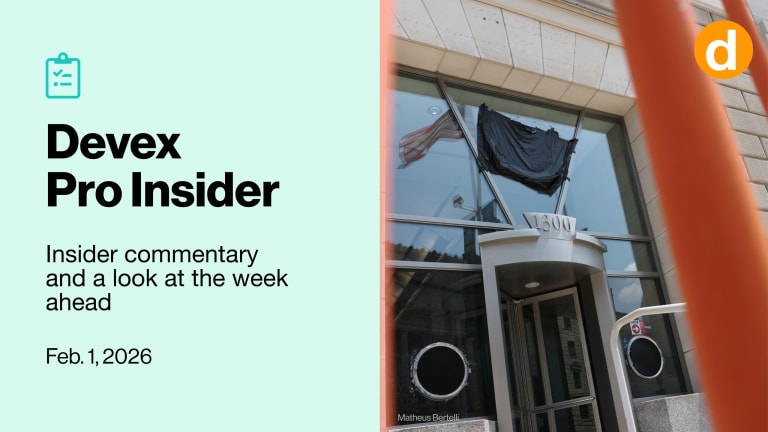
The U.S. Agency for International Development announced the Combating Transnational Corruption Grand Challenge on Tuesday.
The program will ask a wide range of partners “to crowdsource new tools and technologies to stop corrupt officials from plundering resources and moving them across borders,” USAID Administrator Samantha Power said at a side event of the White House’s Summit for Democracy this week.
“To truly stamp out dark money is going to take a lot of light from sources we may not have tapped before.”
— Samantha Power, administrator, USAIDThe Combating Transnational Corruption Grand Challenge is set to officially launch in 2022, lasting for five years. A budget has not yet been revealed. The program is part of an effort by USAID to bring technology and innovation to the fight against corruption, and it builds on a Grand Challenges model that the agency has looked to over the past decade.
Power has suggested that innovation is critical to tackling corruption, which she previously characterized as “basically development in reverse” since it harms economic development, discourages private sector investment, and worsens inequality.
The new initiative is a part of a suite of programming that USAID is announcing in response to the presidential administration’s call to meet the evolving challenge of corruption — one of three priorities at this week’s summit — a USAID spokesperson told Devex via email.
“The Grand Challenge will mobilize a wide range of partners, including businesses, associations and alliances, technologists and innovators, philanthropists, other governments and donors, civil society organizations, and media in the fight against globalized corruption,” the spokesperson wrote, adding that “these stakeholders will work collaboratively to build coalitions, tools, and approaches that will help to curb corruption across high-risk supply chains, as well as illicit finance and the trafficking of commodities.”
Over the next few months, USAID will collaborate with partners to identify opportunities for impact and design a call for innovations. But in the meantime, those who are interested can reach out to challengecorruption@usaid.gov, the spokesperson said.
The program involves companies such as Mastercard, Google, and Amazon, all of which were represented at Tuesday’s event.
Multinational companies must “unreservedly commit to combating corruption in all its forms,” said Kathryn Sheehan, vice president and associate general counsel for business conduct and ethics at Amazon. She was one of several business leaders who shared examples of corruption’s effects on the most vulnerable members of society and their role in preventing it.
USAID uses the Grand Challenges model to tackle development problems in more accessible and collaborative ways than its traditional approach of grants and contracts, Power said.
Health innovators seek more support as maternal, newborn deaths rise
Maternal death and stillbirths are on the rise, and philanthropic donors have shifted their attention to COVID-19. Entrepreneurs say new efforts to fill the gap may not be enough.
“In the past, these Grand Challenges have helped crack some of the major problems we’ve encountered on issues as diverse as childhood education, energy access, and maternal health,” she said, mentioning Saving Lives at Birth — the first of the agency’s Grand Challenges programs — as an example.
The idea is to draw in investment from partners to stretch USAID’s money further, Power added, saying that programs following the Grand Challenges model have generated nearly $10 for every $1 that the U.S. has put forward.
“To truly stamp out dark money is going to take a lot of light from sources we may not have tapped before,” she said.






